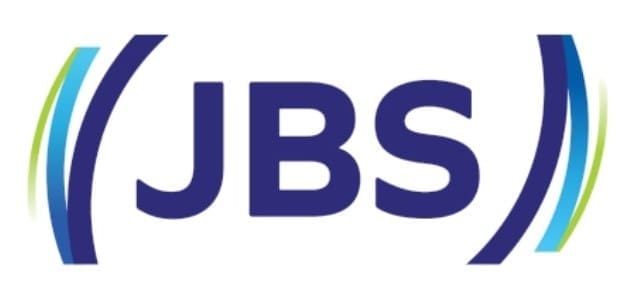THE world’s largest animal protein producer, JBS, has filed its full year results for the year ended December 31, reporting global business net revenue of US$73 billion – similar to the year before.
 However, adjusted pre-tax earnings for the global business were US$3.5 billion, down 49pc on the previous year, due to the oversupply of global protein as well as high prices of grains, especially during the first half.
However, adjusted pre-tax earnings for the global business were US$3.5 billion, down 49pc on the previous year, due to the oversupply of global protein as well as high prices of grains, especially during the first half.
From the second half of the year onwards, results improved with a better balance in the supply demand equation, especially pork and poultry in North America, shareholders were told.
Australian division results
The company’s Australian division (encompassing beef, lamb and pork processing plus the Primo smallgoods and Huon aquaculture businesses) reported net revenue of US$6.2b (down 5.6pc year-on-year); adjusted pre-tax earnings of US$454.7m (up 2.4pc on the previous year).
For the fourth quarter completed 31 December, revenue growth in Australia was the result of higher volumes sold, reflecting the greater availability of cattle in the market.
However, for the full year, the growth in volumes sold was not enough to offset the reduction in prices in the Australian domestic and international markets, JBS said.
The volume of Australian beef business in the fourth quarter grew 11pc compared to the same period in 2022, due to the growth in sales in both the domestic and export markets.
For full year 2023, Australian net revenue was 3pc lower compared to 2022, as a result of lower prices in the domestic and international markets. However, the improvement in EBITDA margin for both periods was a reflection of lower cattle prices, given the greater availability of animals due to the more favorable cycle.
JBS quoted Meat & Livestock Australia data suggesting the price of cattle in Australia fell 55pc year-on-year in the fourth quarter, and 47pc in 2023. This year’s growth was a reflection of the program to improve herd health and better carcase optimisation, it said.
US beef business impacted
The growing challenges in terms of beef processing margins in the US were evident in the company’s US beef division, where adjusted pre-tax profit fell 94pc on the previous year to US$114m. Net revenue increased 5.6pc to US$23.3b.
“Both for the year and the last quarter, beef margins in JBS’s North American business suffered a significant impact compared to the previous year, as a result of the cattle cycle in the region, reducing the availability of animals for slaughter and significantly increasing costs,” shareholders were told.
According to data released by USDA, US cattle prices remained at high levels, growing 16pc year-on-year in the fourth quarter, and 21pc in 2023.
“Therefore, as the price of cattle represents 85pc of the cost of goods sold, and growth in costs was higher than the growth in the cutout, US profitability came under pressure for the period,” the company said.
For the year, US beef exports fell 16pc y/y according to the USDA, mainly due to a restricted supply combined with lower Asian demand. The top three US destinations continued to be South Korea, China and Japan.
Value in global footprint

Gilberto Tomazoni
In providing background, JBS global chief executive Gilberto Tomazoni emphasised the value of the company’s global footprint in navigating local peaks and troughs.
“In the face of challenging conditions like those we encountered in 2023, this platform has proven its strength. It has allowed us to continue generating cash and distributing dividends,” he said.
Despite the persistent negative effects of the US cattle cycle on the company’s north American beef processing operations, the operational management measures the company had adopted last year, and the improvement in the medium-term outlook enabled JBS to enter 2024 on the path of margin recovery, he said.
Mr Tomazoni said JBS’s multi-protein and multi-geography strategy put it in an unmatched position in the global industry.
“This diversity allows us to capitalise on the cattle cycle upswing in Brazil and Australia, while our American operation faces margin declines due to current market conditions.
In Australia, the improved outlook was reflected in a significant increase in margin in the fourth quarter of 2023 (October-December) compared to the same period last year, he said.
“In Brazil, where the situation is similar, significant growth in cattle processing volume, increased value-added product sales, the authorisation of new plants to supply the Chinese market, as well as improved profitability of exports offer promising prospects for the JBS beef business in the short and long term.”
Aquaculture growth
JBS’s extension from land-based animal protein into salmon farming in Australia was also singled out for mention.
“Through our global platform, we operate successfully in all relevant proteins. Our growth in aquaculture (JBS purchased Australia’s Huon Aquaculture in 2021) has produced results exceeding expectations, reaffirming our belief that we will replicate what we have done previously with beef, chicken, pork and value-added products.”
The growing profitability in the quarter and year for JBS’s new aquaculture business was due to increased operational efficiencies, the company said.
This year, JBS plans to complete construction of its cell-based cultivated protein facility in San Sebastián, Spain.
Mr Tomazoni said the company was also building a Research, Development and Innovation Biotechnology Innovation Centre in Brazil
“We are a food company, and our focus is to meet consumer demand for all types of protein,” he said.
“We remain confident in our long-term strategy: we will continue to reinforce our diversified platform, both geographically and by protein type, investing in strong brands, value-added products, and strategic partnerships with our customers,” Mr Tomazoni said.
“This set of actions is crucial for increasing margins and reducing volatility. The investments we made in 2023 are significant milestones that support this direction.”

HAVE YOUR SAY